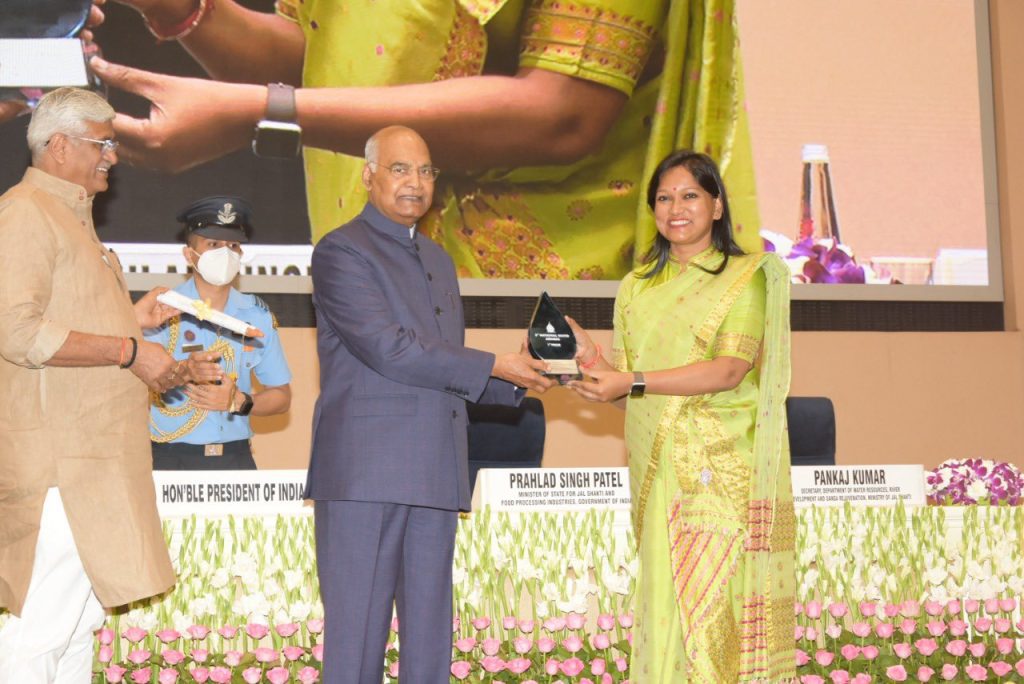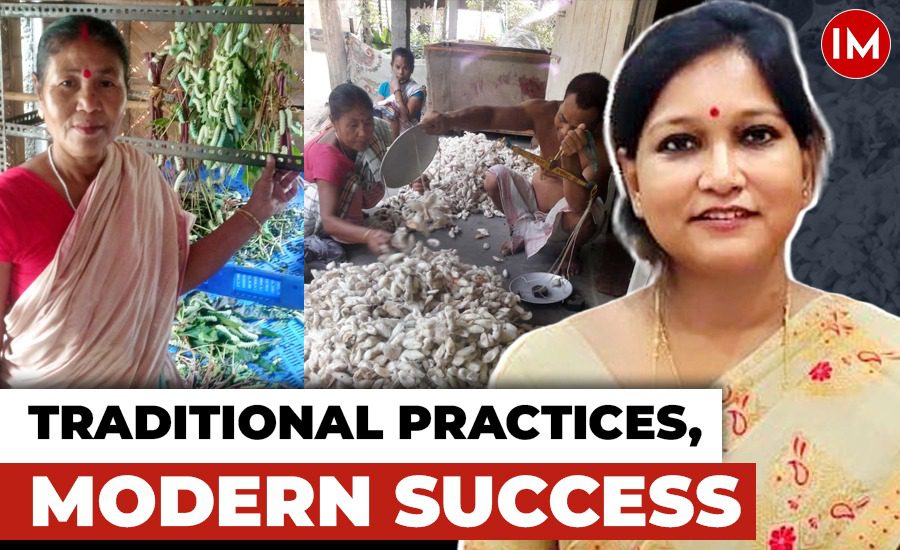In Nalbari, Assam, Eri culture, an age-old ethnic tradition of rearing Eri silkworms (Samia ricini), is transforming into a thriving economic activity, fostering socio-economic benefits and promoting sustainability. Once limited to preserving cultural heritage, Eri culture is now driving significant economic development in the region.

Nalbari, a district with 109,481 economically disadvantaged households (SECC data), faces numerous challenges, including small landholding sizes and high anthropogenic pressure, being the third densest district in the state. The need for sustainable livelihood options, especially for women, has driven the district administration to revitalize and modernize the traditional practice of Eri rearing. This effort is further bolstered by the presence of a vibrant ecosystem of Women’s Self Help Groups (SHGs) under the Rural Livelihood Mission.
Recognizing the potential of Eri culture, the district administration has implemented various initiatives to support and develop this traditional practice. A cluster approach was adopted, integrating benefits from schemes like MGNREGA, NRLM, and Amrit Sarovar. This strategic dovetailing of resources has led to positive spillovers in livelihood development.
In a conversation with Indian Masterminds IAS officer and DC of Nalbari, Ms. Varnali Deka said, “This is a multifaceted livelihood initiative wherein we have taken special efforts for creating a self-sustaining value chain, leading to massive contribution to the GDP of the district and state by the women and eri rearers at incremental efforts even after completing their household and daily chores. We will create many more Lakhpati Baideus by this scheme.”
Supporting Eri Culture through Strategic Initiatives
To bolster Eri culture, the administration has established extensive plantations of Era (castor), Keseru, and Tapioca along the newly constructed Amrit Sarovar ponds. Over 100 hectares of community and individual land have been dedicated to these plantations, enhancing the district’s and state’s greening initiatives. The maintenance of these plantations is managed by Cluster Level Federations, ensuring the direct involvement of the beneficiaries.
Additionally, the administration has provided Eri sheds through MNREGA to 200-250 SHG women in each of the seven Development Blocks of Nalbari. These ergonomically designed sheds offer a controlled environment for Eri silkworms, optimizing space and cost. Within six months of its launch, this initiative has benefited thousands of families, offering them a sustainable livelihood option that requires incremental efforts. Eri rearing does not demand full-time occupation, allowing rearers to balance household chores with their work.

One beneficiary, Ms. Akhari Bodo from Nowra village under Barkhetri Development Block, expressed her satisfaction with the Eri shed provided. “Now I can rear 5 to 6 crops per year and earn ₹8000-₹10000 per crop. Earlier, we reared Eri worms in our kitchen, managing only 2-3 crops per year with poor earnings due to the lack of a proper Eri rearing shed and adequate feeder leaves. The new shed has transformed our lives,” she shared.
Market Expansion in Eri Silk Production
Through judicious use of the Silk Samagra scheme, Nalbari district has achieved self-sufficiency in Eri seed production. Previously dependent on imports from Kamrup and the Central Silk Board under the Ministry of Sericulture, Nalbari now meets its local supply and exports to Rangia, Bajali, and textile mills in Panikhaiti, Guwahati. During peak production months from April to November, the district has already exported 4000 kgs of cocoons to mills in Coimbatore, Bengaluru, and Malda. Rearers now retail cocoons at rates of ₹900-₹950 per kg, with another 15 kgs slated for export by the end of the month.
To further enhance production, an Eri spinning unit was established in an amalgamated school building under the Barkhetri Development Block. Equipped with 40 Eri spinning machines, this unit allows spinners to produce 180-200 grams of yarn per day, compared to the traditional Takli method, which yielded only 60-70 grams per day of coarser yarn sold at lower prices.
The district administration has also focused on creating strong market linkages and promoting Eri silk products. Expos like ‘Nalbeira HAAT’ provide a platform for local weavers through ASRLM, and partnerships with e-commerce platforms like ‘My Store’ expand their market reach. With assistance from NABARD, a Rural Mart has been set up at the Nalbari Planetarium, further boosting local sales.

“Earlier, we distributed only 11-12 kgs of Eri seed, resulting in around 4 metric tons of cocoons sold. Today, local demand exceeds 6 kgs of seed every month, resulting in over 7 metric tons of cocoons produced by rearers supported by us,” stated the Deputy Director of Sericulture, Assam, who noted the significant progress.
The multifaceted approach towards supporting the Eri culture has not only preserved this traditional practice but also enhanced economic conditions for many families in Nalbari. Improved living standards, better access to education and healthcare, and economic empowerment of women involved in Eri silk production are some of the significant benefits observed. The success of this initiative highlights the potential of traditional practices in contributing to sustainable economic development.
































